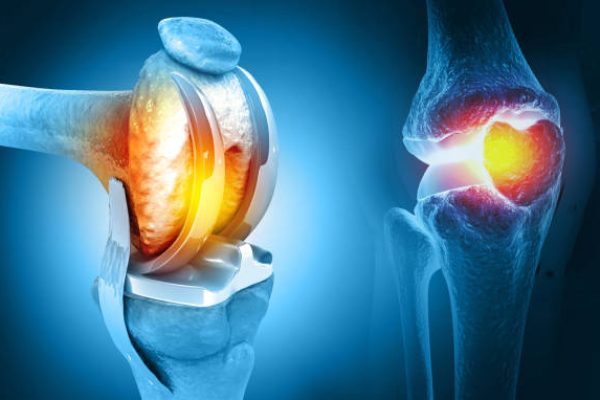Overview
Knee replacement surgery, also known as knee arthroplasty, is a procedure in which a damaged or worn-out knee joint is replaced with an artificial joint (prosthesis). This surgery is typically recommended for individuals suffering from chronic knee pain or dysfunction, most commonly due to conditions like osteoarthritis, rheumatoid arthritis, or trauma.
Types of Knee Replacement:
- Total Knee Replacement (TKR):
- The most common type, where the entire knee joint (femur, tibia, and patella) is replaced.
- Partial Knee Replacement (PKR):
- Only part of the knee joint is replaced. This is suitable for patients whose knee damage is confined to one part of the joint.
- Kneecap Replacement (Patellofemoral Arthroplasty):
- Only the surface of the kneecap and the groove it slides in are replaced. This is for people with damage to the kneecap or its area.
The Procedure:
- Pre-surgery:
- The patient is usually given general or regional anesthesia (spinal or epidural), and the area is cleaned and sterilized.
- Surgical process:
- The surgeon removes damaged cartilage and bone from the knee joint.
- The prosthesis, often made of metal and plastic, is then placed to recreate the function of the natural knee joint.
- Post-surgery:
- The incision is closed, and the patient is monitored in the recovery room.
- Rehabilitation (physical therapy) begins soon after surgery to regain strength and mobility.
Benefits:
- Pain relief: One of the main reasons for the surgery is to alleviate chronic knee pain that has not responded to other treatments.
- Improved mobility: The goal is to restore function and allow the patient to return to daily activities like walking, climbing stairs, or exercising.
Risks and Complications:
- Infection at the surgical site.
- Blood clots in the legs or lungs.
- Implant failure or loosening over time (requiring revision surgery).
- Stiffness or limited range of motion.
Recovery:
- Initial recovery typically takes 6-12 weeks, though full recovery can take up to 6 months or more.
- Physical therapy plays a key role in regaining strength and mobility.
- Most patients experience significant pain relief and improved function within 3-6 months post-surgery.
Lifespan of Prosthesis:
- Knee replacements are designed to last between 15 to 20 years, but this depends on factors such as age, activity level, and weight.
Knee replacement can drastically improve quality of life for those suffering from knee arthritis or joint degeneration, although careful consideration of risks and a commitment to rehabilitation are key to successful outcomes.


